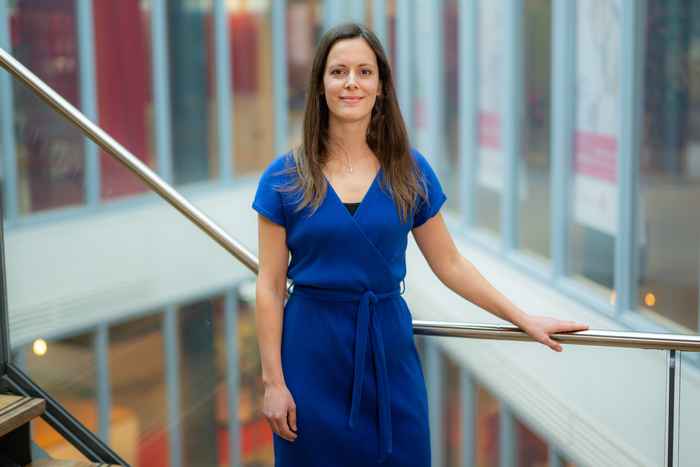Jorien Treur (Feb 2024 - May 2024)
Assistant Professor at Amsterdam UMC

My research
My research focusses on unravelling the mechanisms that lead to comorbidity between different types of (mental) health disorders. I am particularly interested in answering causal questions. For instance, does smoking causally increase your risk of developing a depressive disorder? Or, are there causal relationships between mental health disorders and cardiovascular diseases, and if so, in which direction?
I obtained my PhD in 2016 at the Netherlands Twin Register at VU University in Amsterdam. During my PhD project I collected and analyzed data of thousands of twins and their family members to disentangle genetic from environmental influences on mental health. After obtaining my PhD, I worked as a post-doc at Radboud University and the University of Bristol in the United Kingdom where I specialized in genetic causal inference methods such as Mendelian randomization. Mendelian randomization uses genetic variants predictive of an ‘exposure’ variable as an instrument, or proxy, to test causal effects on an ‘outcome’ variable.
In 2018 I joined the the Department of Psychiatry at Amsterdam UMC, where I now have my own research team. We uniquely combine and triangulate different research methods – including genetic, epidemiological, and experimental studies – to answer important causal questions in the field of psychiatry.
IAS fellowship
The central question to this IAS team-fellowship, consisting of Jorien Treur, Margot van de Weijer and Robyn Wootton, is: "How can we use insights about causality from different fields to improve triangulation (the process of integrating different research approaches) and answer complex mental health questions?" The idea behind triangulation is that using several different research approaches in unison will lead to more reliable overall evidence for causality and the estimated causal effect. However, there are many uncertainties with regards to triangulation, particularly around how to succesfully synthesize (very) different pieces of causal evidence. To shed more light on this, we will:
- conduct a systematic review of triangulation studies, focussing on the commonly studied but highly complex trait of depression but drawing conclusions on health research triangulation more generally;
- organize an expert seminar, inviting (inter)national experts from our network as well as from IAS to provide insights from their line of work and discuss unsolved issues with respect to triangulation and synthesizing evidence from various causal methods.
We aim to combine the insights from both the systematic review and the seminar into a white paper. We expect that the inspiring and interdisciplinary environment of IAS will help us to significantly move the field forward and inspire more informative triangulation efforts.